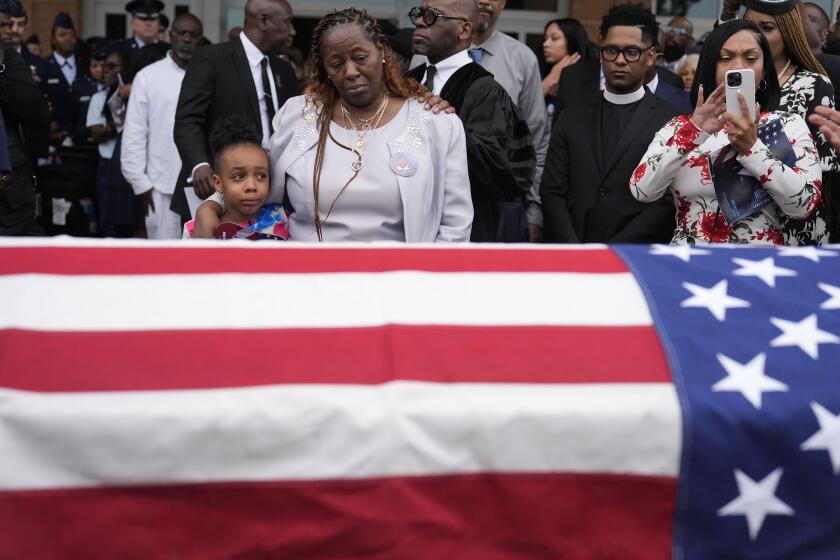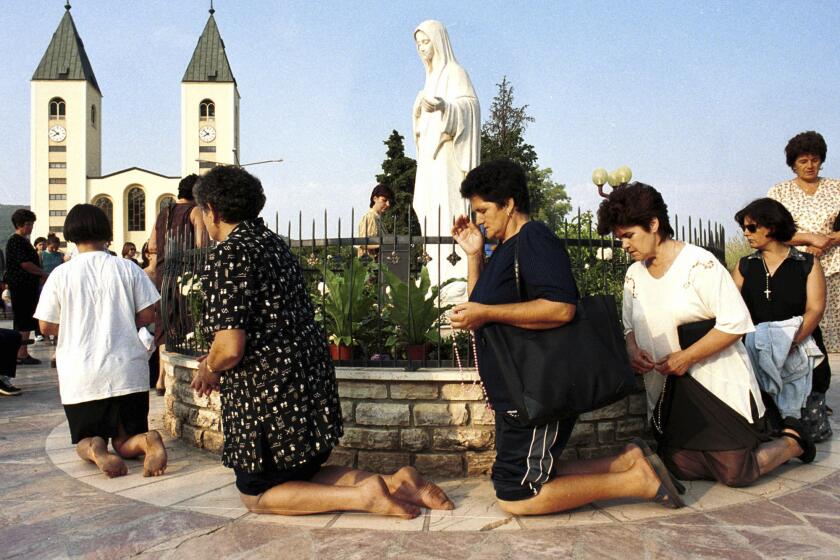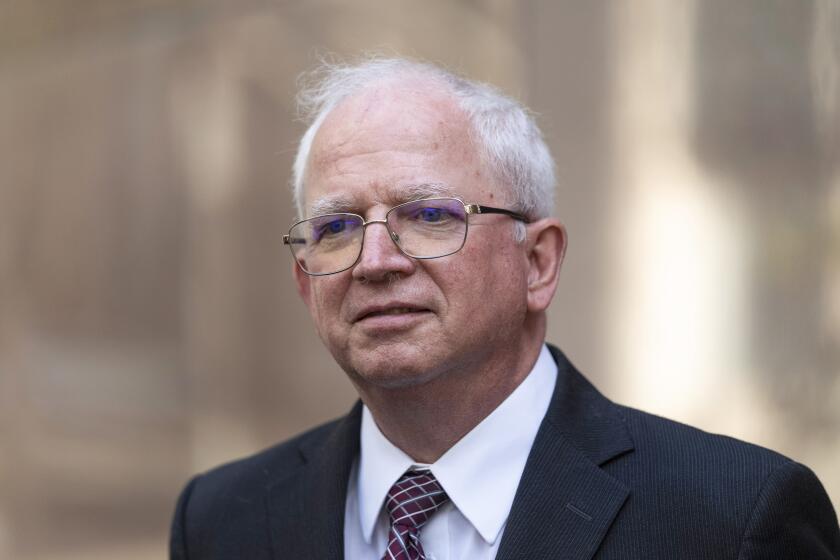Chinese Dissident Describes Harassment
Two days after arriving in the United States, leading Chinese dissident Liu Gang on Friday described the torture he endured in a Chinese prison, including electric shocks and beatings that broke his arm.
But Liu, who said he had not slept in 10 days when he met with reporters at the apartment of a fellow dissident, said it was the constant police harassment of his family that finally drove him from his country.
“Whoever I connected with would get in trouble with police. They made my life impossible,” Liu said between sips of milk and bites of a bagel.
Liu, 35, arrived in the United States on Wednesday after leaving China last Saturday with help from human rights groups.
He served six years in prison for being a leader of the 1989 Tiananmen Square democracy movement and was released in June. At the time of his arrest, he was No. 3 on the police’s most-wanted list.
Speaking through an interpreter, Liu would not discuss the details of his trip or disclose whether he had received asylum from the United States. But he freely talked about why he had left.
Police beat his father and siblings, he said, and tried to run him over with motorcycles.
“They don’t want my family members to support me,” Liu said.
He said he hoped that leaving China would put an end to the harassment of his family, who live in Liaoyuan in northeastern Jilin province.
“If they [continue the harassment] I can get that message from a family member, and I will appeal that to the international community,” Liu said.
White House spokesman Mike McCurry said Liu, a physicist, was allowed into the United States under a Justice Department waiver that allows admittance for emergency or national interest cases.
Other dissident leaders fled to the United States shortly after the Chinese military crushed the student-led democracy movement on June 4, 1989. Liu said the movement remains strong and is best served by anonymity.
“First of all, a lot of democratic leaders are still in China,” he said. “When the leaders become famous, they get a lot of harassment and abuse by the government. There are many more others. . . . The movement doesn’t really depend on any one individual.”
More to Read
Start your day right
Sign up for Essential California for news, features and recommendations from the L.A. Times and beyond in your inbox six days a week.
You may occasionally receive promotional content from the Los Angeles Times.






